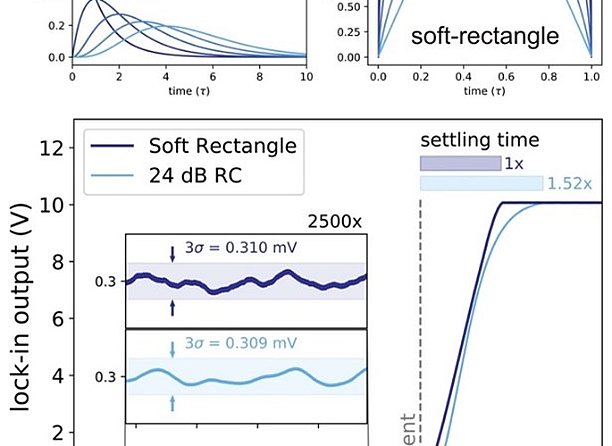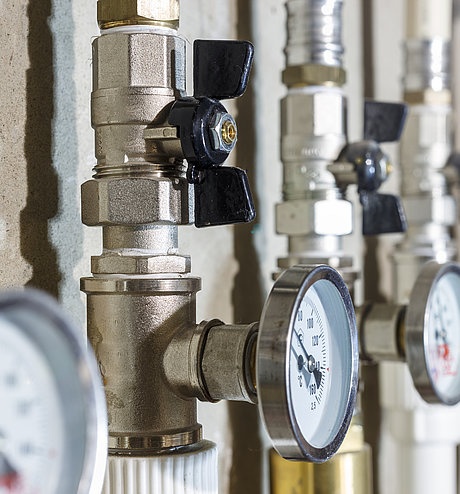Lock-In Amplifier - Lock-In amplifier with optimal noise suppression
Ref.-No. 5729
Keywords: optimal filter, lock-in, adaptive wait time, measurement value extrapolation, prediction, multi method data analysis, data analysis, digital signal processing, signal processing, measurement technology
Lock-In amplifiers are firmly anchored in everyday research. They offer excellent noise suppression for repeating signals. The degree of suppression, however, depends critically on the low-pass filter at the end of the signal processing chain. Until now, simple narrow-band filters are generally used which have an infinite settling time and a suboptimal capability of supressing a white noise background (Fig. 1, showing 6dB, 12dB, 18dB, and 24dB RC-filters). The new ‘soft rectangle’ filters of the invention offer a finite settling time and provably the best RMS spectral width for a desired suppression of a white noise background (Fig. 2). Reaching the same noise level s, these filters considerably cut down measurement times. Fig. 3 compares output of a lock-in amplifier using the new soft rectangle filter with a standard 24 dB RC filter after a switching event. The soft rectangle filter shows a 1.52 improvement in settling time. Even a factor of up to 2.3 compared with a first-order RC-filter and a factor of up to 3.4 compared with a fourth-order Butterworth-filter can be obtained (for a typical 99%-settling time). Moreover, the finite settling time completely eliminates contaminations of the measured data point by a previous data point. The dramatic speedup of measurements will result in a more economic use of expensive lab equipment and personnel and allow for the measurement of even weaker signals on a noise background.
Competitive Advantages
- Optimal noise suppression
- Tuneable low-pass filter
- Many applications
Commercial Opportunities
Lock-in amplifiers are widespread in general laboratory environments, the semiconductor industry, and healthcare as a growing market for their use [1]. A vendor offering a lock-in amplifier device that provides the “soft-rectangle window” for cutting down measurement times will certainly have a clear advantage over vendors that provide the standard RC-filters. Any informed lab director will in the future ponder the purchase of a lock-in amplifier with an improved signal-to-noise ratio.
Current Status
A German patent application was filed, international applications are still possible. On behalf of the Ruhr-Universität Bochum, we offer interested companies the opportunity to license and further develop the technology.
Relevant Puclications
[1] www.transparencymarketresearch.com/lockin-amplifier-market.html
—
An invention of Ruhr-Universität Bochum.



